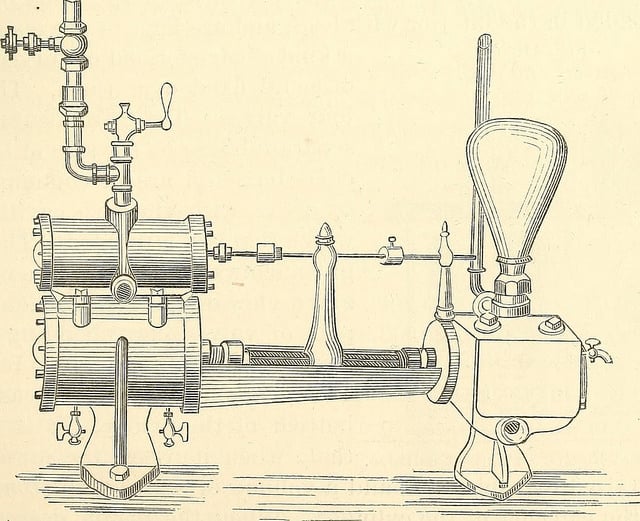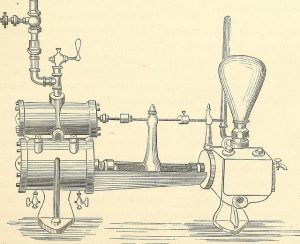
 Getting Enough of the Right Professional Development
Getting Enough of the Right Professional Development
Learning the basics of reliability engineering is where we all start. Mastering the range of skills and techniques is a never ending quest.
Improving, maintaining, expanding your reliability engineering professional skills takes many forms. There are plenty of options and sources to support your education, yet are do getting enough of the right material?
Let’s explore this seemingly simple question with an idea to outline a self assessment of your current professional development plan.
Do you have a professional development plan?
At one time working at HP we were required to craft a professional development plan for ourselves. We did get a few suggestions and examples to base our planning, yet were pretty much left to our own imagination to draft a meaningful plan.
That didn’t work too well, at least for me.
I basically listed a few activities: attend a conference, 3 evening professional society meeting, and read a book.
I outlined a few things I would do — not including what or even if I would actually learn something.
What in your plan? Do you have one?
Getting Started Building Your Plan
So, if a list of activities is not a plan, what should be in your plan?
To start your plan should have a goal or objective. What is it you’re trying to learn and why? This provides focus to your professional development and may help you make better decisions about what you actually spend time doing.
Let’s back up a little. Where do you find or how do you determine a professional development objective? Start with an assessment. You may have been asked during a job interview something like: “Where do you see yourself in 5 years?” Did you have an answer? Have you thought about your career and life in such a way to provide a direction?
Five years is a long time, and the chance that your objectives will change is high. Yet, start with a look long term. What would you like to be doing 5 or 10 years from now. Start your own consulting business. Become the Director of Engineering in your firm. Develop and implement a corporate wide reliability program
What ever your objective do you have and know everything you need to achieve your goal? Most likely not. You may need additional technical, business, or social skills. You may need to learn who to present well using persuasive techniques to improve your proposal pitches. You may need to master accelerated life testing skills, which may require brushing up on your statistical skills.
The assessment starts with what you see as the areas or tools you need to achieve your goals.
Second, get some feedback. Ask a friend, mentor, or colleague for a candid assessment. Ask them for what you do well (you may be surprised) and what areas you should improve (just listen and take notes — do not challenge or justify).
Together this internal and external assessment may provide a set of suggested areas to focus your professional development. I would include what you are particularly interested learning, too, even if not work related or necessary to achieve your goals. Something fun. Something to expand your overall skills set.
Write down your goals. If your long term goal is to be the goto expert for accelerated life testing, then you may need to learn the basics of accelerated life testing this year. Write down all the goals, then prioritize and place in order. For example, learn regression analysis techniques may have to occur before focusing on the ALT data analysis learning tasks.
Again review this with a mentor or experienced colleague to identify any missing steps.
Lay Out a Draft Plan
This may take a little research yet how are you going to learn what you need to know to achieve your goals. Remember that courses are only one way to learn what you need to know. Books, technical papers, trade journals, blogs, webinars, seminars, conferences, are also viable ways to learn.
You plan may include multiple approaches with a mix of media and approaches. Reviewing an introductory text before diving into technical articles often makes sense. Maybe you learn when able to discuss the topic, then search for a webinar or seminar to find others interested in the same topic.
Mix up how you go about what you need to learn. This allows you the flexibility to make progress immediately, and master the topic with repeated exposure to the topic. Along the way over time you will be asking better questions and retaining more of what you are learning. Follow up with implementing what you are learning. Practice setting up an ALT design and get feedback on the ALT plan.
Add more than you can do in the year then prioritize and focus your plan to what you can actually accomplish. Also, not every step or element of the plan has to be finalized immediately. Set up searches or start asking questions to find the right professional development material that helps you achieve your goals.
As the year and what you learn progress, you may want to alter the details of the plan, as you may realize you need to also learn ANOVA analysis, for example, to support advanced ALT data analysis techniques. Realize the more we know the more we know we don’t know. The plan is to help you achieve your professional development goals. Your plan is not a checklist of activities.
Again get some feedback. Ask for help finding the best material to help you learn what you want to learn. Revise and improve your plan.
Implement Your Plan
Set time aside to read, to search, to review, to experiment, to try out what you have just learned. Actually learn something along the way. It’s not about picking up certificates of completion, it’s about being able to do something the previously you couldn’t.
Adjust as necessary with a focus on your goals. As you learn you may find additional material or topics that you need to master along the way, plus you may run across opportunities to attend webinars or seminars that match your needs.
A great technique to help you master a topic is to write or teach on the topic. Prepare articles or lessons and share what you have just learned. Guest post an article or offer an informal class where you work. Explaining a topic clearly takes mastery of the topic.
Include Ongoing Education
In addition to creating a plan to move your toward your goals, include some time to explore a wide range of topics. Be curious and set up a way to find interesting subjects to be curious about. The concepts and experiences we draw upon to solve problems may come from a completely unrelated field of interest.
Read widely. Both fiction and non-fiction reading helps you process and solve problems creatively. Some topics require a focused effort to master, yet that process is enhanced by spending some time satisfying your curiosity about unrelated topics.
Subscribe to a range of newsletters and blogs to receive a stead stream of topic ideas, of interesting questions to ponder, and to expose yourself to a broader range of ideas. Subscribing to the NoMTBF blog is an example (thanks if you already are a regular reader!)
How do you build your professional development plan? What article topics or courses would help you achieve you goals?
Further reading
I did a little research on how to craft a professional development plan and found these articles useful.
Creating a Professional Development Plan, by EDUCAUSE. A pdf document that includes worksheets and detailed guidelines.
http://net.educause.edu/ir/library/pdf/mwrc10_202068.pdf
Plan Your Professional Development of the Year, Harvard Business Review
https://hbr.org/2016/01/plan-your-professional-development-for-the-year
6 Steps to Create a Professional Development Plan, Shala Marks, Recruiter.com
https://www.recruiter.com/i/6-steps-to-create-a-professional-development-plan/
Creating Your Professional Development Plan: 3 Surprising Truths, Chrissy Scivicque, Forbes
Leave a Reply